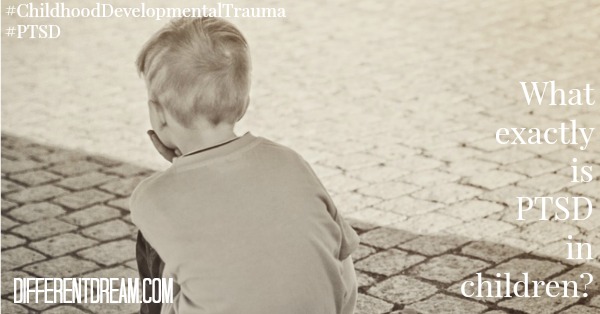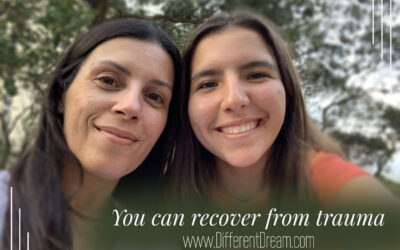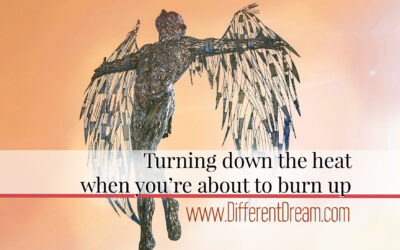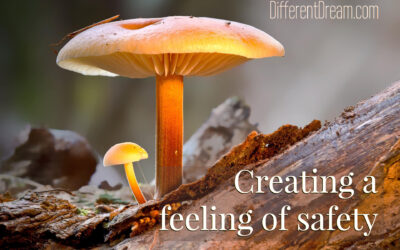PTSD in Kids: What Is It?

Post-traumatic stress disorder (PTSD) is common in children. More common than adults, who want to believe they can protect kids from all harm, want to admit. Because PTSD in kids is real, parents, educators, medical professionals, therapists, and caregivers need to know as much as possible about the disorder.
PTSD in Kids and Friendship Circle
My latest guest post at Friendship Circle of Michigan’s very informative blog, answers some basic questions about PTSD. The article first defines trauma and then post-traumatic stress disorder. It explains what causes simple trauma to morph into it’s bigger, meaner cousin, post-traumatic stress disorder.
PTSD Resources
The guest post cites books by William E. Krell and co-authors Peter A. Levine and Maggie Kline, resources that explore childhood PTSD in depth. Their books also provide guidance about how to work with traumatized children and prevent simple trauma from becoming post-traumatic stress disorder. So hop on over to the post What Is Post-Traumatic Stress Disorder in Children? at Friendship Circle of Michigan’s blog to read the whole thing.
PTSD in Kids: More Questions
Of course, reading the post will lead to more questions about the disorder. Questions like:
- Why do some kids develop PTSD after trauma but others don’t?
- What are symptoms and warning signs of PTSD in kids?
- How can it be prevented?
- How can it be treated?
PTSD in Kids: What Do You Want to Know?
Those are the questions that came to mind when I first learned about PTSD in children. Maybe you have other questions spinning around in your head. Go ahead and leave them in the comment box. I’ll do my best to answer your questions in future posts in the Friendship Circle series. If you think your child is suffering from PTSD, visit Intensive Trauma Therapy’s website, www.traumatherapy.us, to learn more.
Do you like what you see at DifferentDream.com? You can receive more great content by subscribing to the quarterly Different Dream newsletter and signing up for the daily RSS feed delivered to your email inbox. You can sign up for the first in the pop-up box and the second at the bottom of this page.
By Jolene
Jolene Philo is the author of several books for the caregiving community. She speaks at parenting and special needs conferences around the country. Sharing Love Abundantly With Special Needs Families: The 5 Love Languages® for Parents Raising Children with Disabilities, which she co-authored with Dr. Gary Chapman, was released in August of 2019 and is available at local bookstores, their bookstore website, and Amazon. See Jane Dance!, the third book in the West River cozy mystery series, which features characters affected by disability, was released in October of 2023.
10 Comments
Submit a Comment
Subscribe for Updates from Jolene
Related Posts
Trauma vs. Trust
For special needs parents, figuring out trauma vs. trust becomes the difference between enduring life and enjoying it.
Flying Near the Sun as a Special Needs Parent
Guest blogger Lisa Pelissier explains how she copes when she is flying near the sun as a special needs parent.
How Can I Make You Feel Safe?
Whether your loved one suffers from trauma or dementia, the best question a caregiver can ask is, “How can I make you feel safe?”






Jessica, you are doing the best thing you can for your daughter with an early diagnosis and treatment. Her story is not over yet, and with early treatment her healing could be profound. Be sure she’s doing more than just talk or play therapy. She needs some sort of non-verbal therapy like EMDR, guided imagery, art therapy, or hypnosis to access and process her non-verbal memories. If you have more questions, please go to the contact button and send me a direct email. I’d be happy to talk to you more. Jolene
My 6 year old daughter was recently diagnosed with PTSD and an adjustment disorder. I’m not quite up to date on the details of either even though I as well have PTSD. She is in therapy and I am as well. I’ve noticed she does better in school compared to home. At home she can be the sweetest thing ever, but one wrong word and she can flip that switch and she’s brutally mean. She has a very diverse vocabulary for 6 years old and tells me all the time how it’s funny her daddy hurt me and tried to kill me. Hat sentence right there is why she is in therapy. I’m hoping through time she will realize that relationships like I was in with her father, or any other form of abuse are not okay. I’m worried about her future relationships being abusive because that’s what she saw growing up.
You’re very welcome, Wendy. I can’t not get the word out knowing how many children are suffering needlessly.
Jolene
Thanks for this informative article. Very important information. Thanks for doing your big part in getting the word about about post-traumatic stress in children!
Amber, parents never feel qualified, but we are qualified by virtue of unique experiences. I’ll be in touch again when/if the proposal is accepted.
Jolene
Jolene, I am honored that you would consider me a good interview source, although I hardly feel qualified. 🙂
Danica,
I am so sorry to hear about your daughter’s trauma. Does your daughter receive any treatment for PTSD? My guess is that she could benefit greatly from the right kind of therapy.
Jolene
How interesting, Amber. If a publisher picks up my book about PTSD in kids, you would be a fantastic interviewee. Are you interested?
Jolene
Awesome information.
Our family lives in a small village, where everybody knows everybody. About 2 years ago my nine year old daughter with Tourette syndrome, OCD and ADD was chased by a man she didn’t know.
She was riding her bike to a friends house when a van started following her. She noticed the van start to speed up so she pedalled as fast as she could, and by doing so lost her shoe and broke the bicycle chain. She ran to the nearest house while the van waited in the neighbor’s driveway.
The man of the house she ran into couldn’t get over how traumatized my daughter was so he ran out only to see the van leaving.
The man driving the van took responsibility for this incident, but claimed it was a case of mistaken identity, and never appologized.
Needless to say, this incident elevated her OCD and ADD by leaps and bounds.
Danica Surette
Jolene, we are in the process of undergoing neurofeedback therapy with our son. I think its a great treatment option for PTSD that most people probably don’t know about. Plus, neurofeedback can be beneficial to a wide variety of issues beyond PTSD. Neurotherapy helped our son with hyper-vigilence, anxiety, speech clarity,and insomnia.